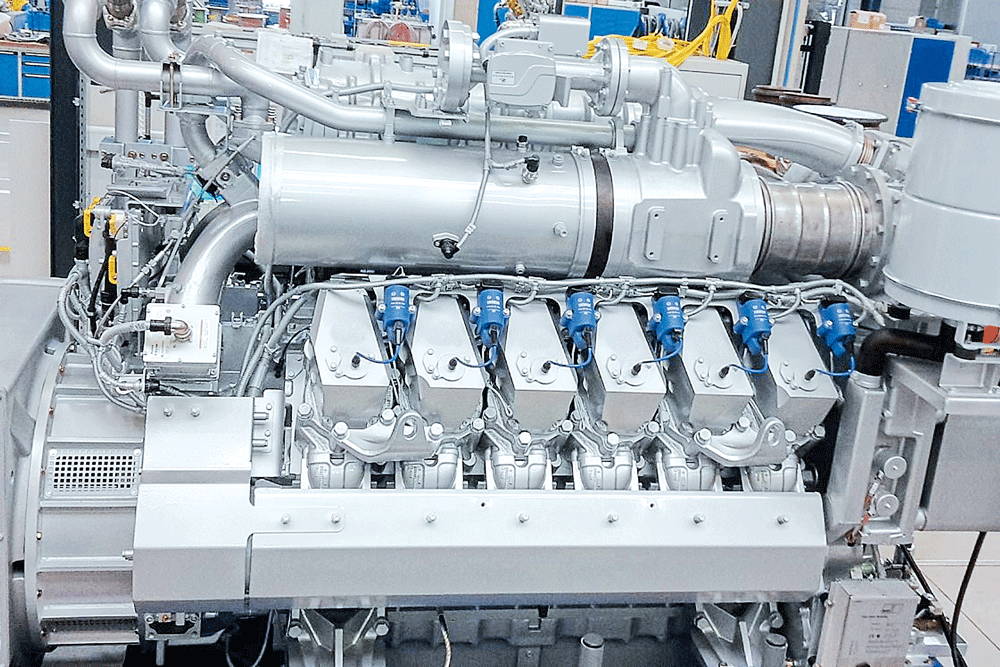Durability field-test results of ABB’s variable valve train system, Valve Control Management (VCM), have shown unprecedented success of the technology on an MTU high speed gas engine.
According to ABB the successful running of each VCM actuator for 7,000 hours on an engine is an [ds_preview]important milestone for the forthcoming serialization of this technology. Typically, a durability test for serialization would last around 5,000 hours for large engines the company stated.
VCM is an electro-hydraulic valve train system for four-stroke gas and diesel engines. It was developed by ABB for and in collaboration with engine builder MTU. The technology allowing a stepless variation of engine valve timing and valve lift from one engine cycle to the next, adjusting the amount of air or air-fuel mixture entering the cylinder. It should increase the adaptability of engine performance in multiple ways. Providing the flexibility for best performance and fuel economy at varying loads, speeds, in various ambient conditions and with differing fuel qualities.
Field tests last twelve month
MTU has now made available data from durability field testing of twelve VCM actuators on the S4000 gas engine installed on its own combined heat and power (CHP) plant in Friedrichshafen, Germany. In the twelve month period of operation in the field, measurements of the valve lift curves showed excellent repeatability. The valve lift curves measured at the beginning and after 7,000 hours of operation are identical MTU stated. VCM actuators were inspected several times with a positive result: neither wear nor aging effects were detected. The tests will now continue until spring 2017.
According to ABB VCM can bring benefits for applications across the marine, rail, off-highway truck, and electric power generation markets. Its durability has so far been proven on a high-speed gas engine. However, VCM is also beneficial for medium-speed four-stroke, gas and diesel engines.

















